2024 Oceanography
Field School at Batemans Bay
April 28, 2024, Yanni Wang, Ling
Meng
The SSCI Oceanography 2&3 Field
School, an annual initiative designed to equip our
graduating classes with essential practical skills,
successfully held its latest session from April 16th
to April 19th, 2024. This year's four-day educational
excursion took place in the picturesque surroundings
of Batemans Bay, providing our students with a
hands-on learning experience crucial to their future
careers in Oceanography.
Throughout the duration of the field
school, both students and staff engaged in
comprehensive oceanographic investigations, focusing
on the dynamics of Batemans Bay's marine environment.
Activities included advanced project planning and the
execution of various field measurements such as wave
patterns, tidal flows, ocean currents, and the
collection of temperature, salinity, and density data
at multiple strategic points within the Bay.
Employing state-of-the-art equipment, our
students utilized tools like the Nephelometer and
RBRvirtuoso3D wave gauge and for tidal and wave data,
respectively, the Acoustic Doppler Current Profiler
(ADCP) for detailed water column current profiles, and
the Valeport instruments for precise water level and
flow data. Additionally, the deployment of the
Conductivity, Temperature, and Depth (CTD) sensors at
various stations provided invaluable data for our
analyses.
We deployed a series of smart buoys
equipped with GPS to track wave-driven currents and
nearshore circulatory patterns, enhancing our
understanding of the Bay’s dynamic marine processes. A
significant achievement of this year's field school
was the successful deployment and retrieval of all
phone drogues.
The students were organized into three
groups, each responsible for a different aspect of the
research. This division allowed for a thorough
investigation of local phenomena such as river plumes,
offshore and alongshore flows, and events of upwelling
and downwelling. Each evening, the groups presented
their findings, discussing the implications of their
data and offering insights into the complex
interactions within marine ecosystems. These
presentations were crucial for synthesizing field data
with theoretical knowledge gained in the classroom. On
the final day of the field school, students
demonstrated exceptional dedication and academic rigor
by compiling and submitting high-quality reports for
each of the three tasks assigned during the week.
The success of the 2024 field school
could not have been possible without the generous
support of our sponsors and local partners. We extend
our deepest gratitude to the Defence and SSCI for
their ongoing financial support, which covers critical
expenses such as accommodation, catering,
transportation, and boating. Special thanks also go to
Shamaram Eichmann from Batemans Marine Park for her
invaluable assistance with the boat operations, Bashir
Ahmad for his expertise in handling the equipment and
moorings, and Sandra Harrison for her impeccable
organization of logistics.
We are proud to declare the 2024
Oceanography Field School a resounding success, and we
look forward to continuing this tradition of
experiential learning that significantly contributes
to the professional development of our students.
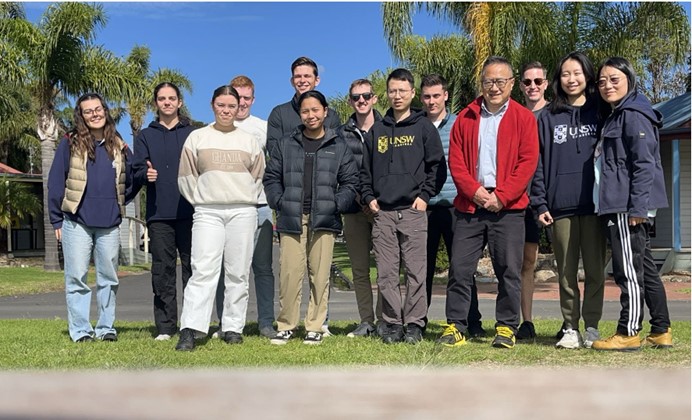
A photo of field-school students and staffs
after completing all the tasks.
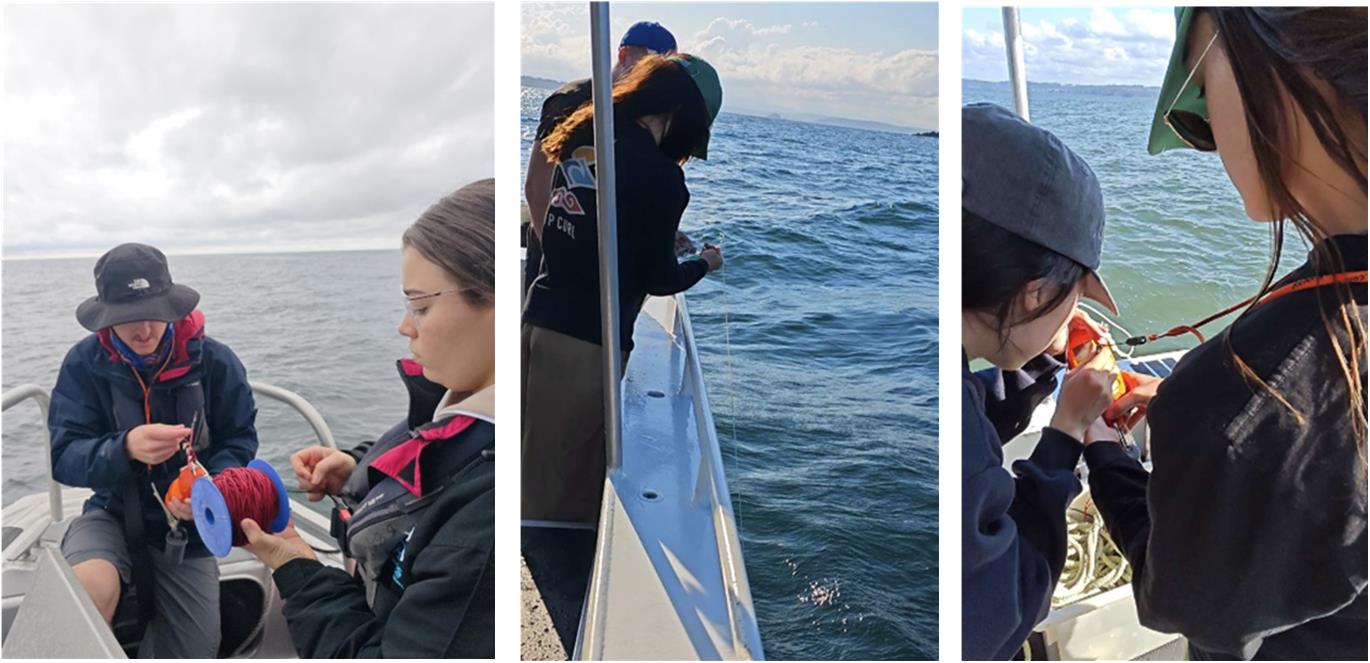
Deploy the CTD
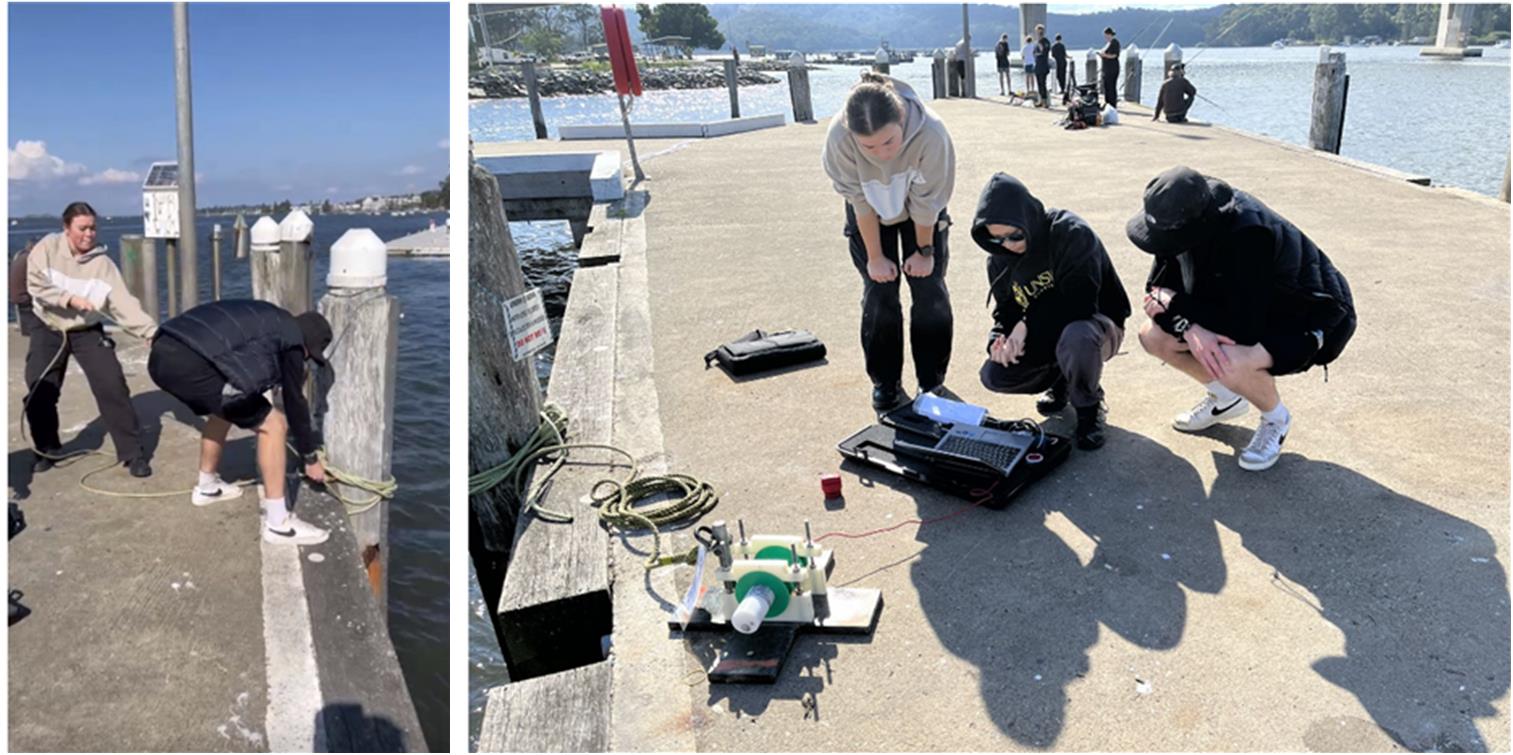
Deploy the nephelometer and wave gauge
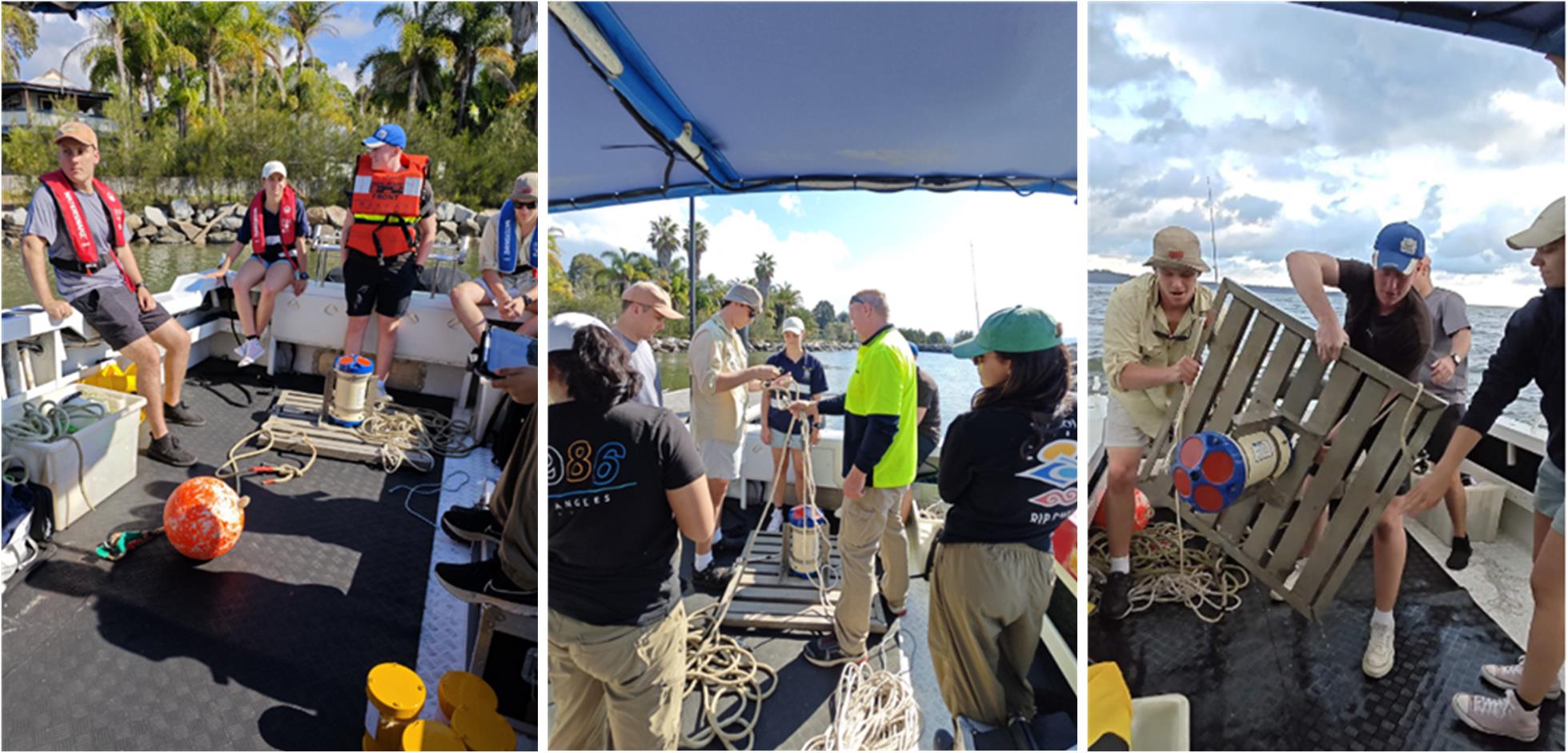
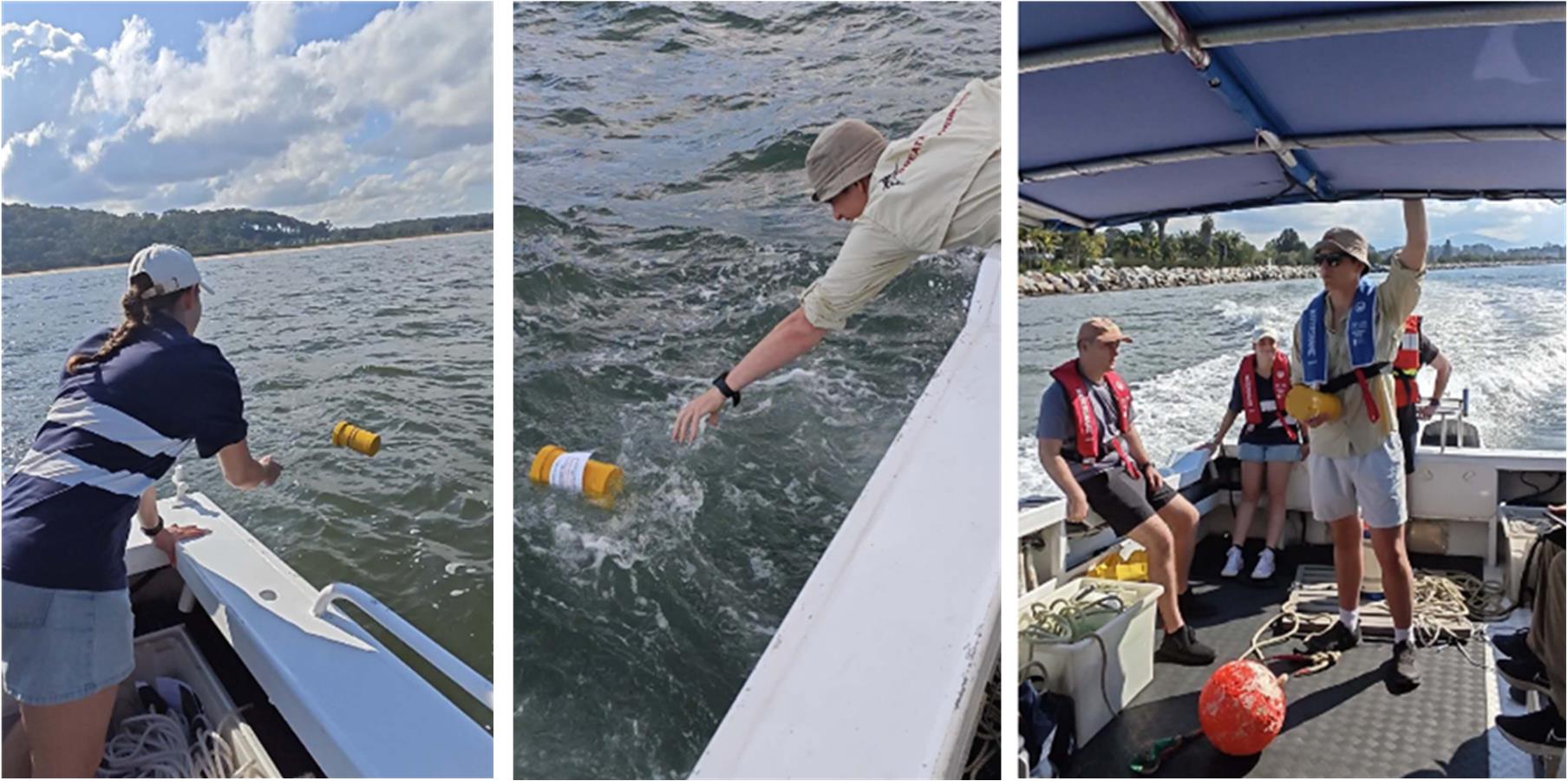
Place and retrieve the phone drogues
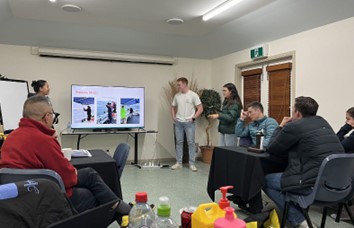
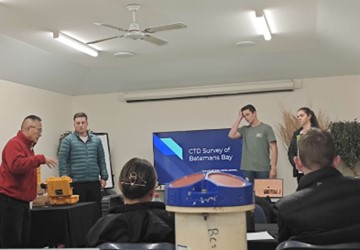
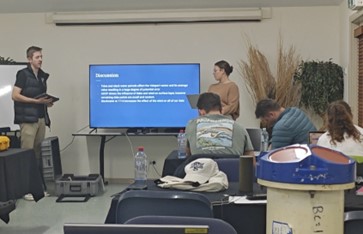
Giving evening presentation on the understanding of the result.

